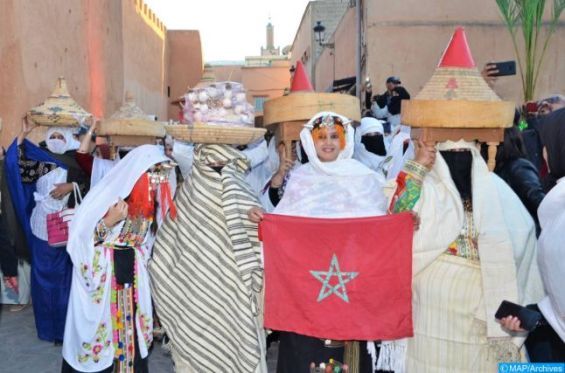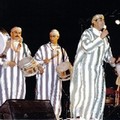It is New Year’s Eve tonight in Morocco. Many will be celebrating the end and the start of a new year, an Amazigh one. The centuries-old celebration is unique in its rituals, delicacies, and vocabulary.
Observed among Amazighs in North Africa, in Morocco, the celebration has become a national holiday since 2023 through a royal decree, with January 14 as a paid bank holiday. Celebrating abundance, Mother Earth, growth, and beginnings, the festivity is not just about food but also connections.
Yan Ayour, the first month of the year
And the first step of these connections is understanding the vocabulary of this New Year celebration. As in Algeria and other parts of North Africa, the Amazigh New Year is called Yennayer, referencing January, the start of the year.
Accounts differ when it comes to this appellation. While many believe that Yennayer is a mere borrowing of the word Ianuarius, the first month of the ancient Roman calendar, from which the Julian and Gregorian month of January derived, another, more appealing theory suggests that Yennayer is in fact two Amazigh words joined to mean the first month of the year. Yen or yan, which stand for «one» or «the first», and Ayur or Ayour, which translates into «moon» or «month», combine to mean «the first moon» or «the first month».
But more commonly in Morocco, people call New Year’s Eve Id Ousseguas, which simply stands for «the night of the year» or simply «the New Year’s eve». Others call it Haguza, though this is less common.
Happy New Year, Asseguass Ambarki
With this in mind, I guess you are ready to wish somebody a happy Yennayer in Amazigh. One of the common ways of saying «Happy Yennayer» is Asseguass Ambarki. But you can be creative. While Asseguass stands for «year», you can add whatever adjective you like. Ambarki, a borrowed word from Arabic, means «blessed».
In the Souss region, people prefer to wish a happy Yennayer this way, saying Asseguass Ifoulki, wishing you a beautiful year to come, as Afoulki stands for «beautiful».
In other parts of Tamazgha, namely in Algeria, people say Asseguass Amegaz, though this is less common in Morocco.
Imnsi Nid Ousseguass, New Year's Eve dinner
During the New Year’s Eve celebration, guests are often expected for Imnsi, which is Amazigh for dinner, and will definitely be served Tagula n Ibriyyen, a porridge made of grains, accompanied by Oudi Ifssin, meaning melted butter, or honey, tamment. Others like to add Agran oil, which Amazighs simply call Argan, with an Akka n tiynni, which is a date seed, a lucky token for whoever finds it.
Yennayer is all about family, Tawja, celebrated among brothers, sisters, and grandparents. In Amazigh, Souss dialect, sisters are called Ist ma, which literally translates to «my mother’s daughters». Brothers are called Ait ma. In one sentence, people start their words by greeting their brothers and sisters or the public in a friendly way, saying: Ait ma d Ist ma, which you have probably heard before at the start of every public address or speech.
After enjoying the meals, Iferkhan and Tiferkhin, young boys and girls end the celebration, depending on the region, with music, singing, dancing, and enjoying a folklore entertainment session.
At the end of the celebration, it is time to say goodbye. The preferred expression is Akni 3awen Rbi, which stands for «May God be with you», wishing the hosts a meeting for next year: Ar lou9tad imal, see you next year. You can also end it with a Tanemirt—thank you.





 chargement...
chargement...













